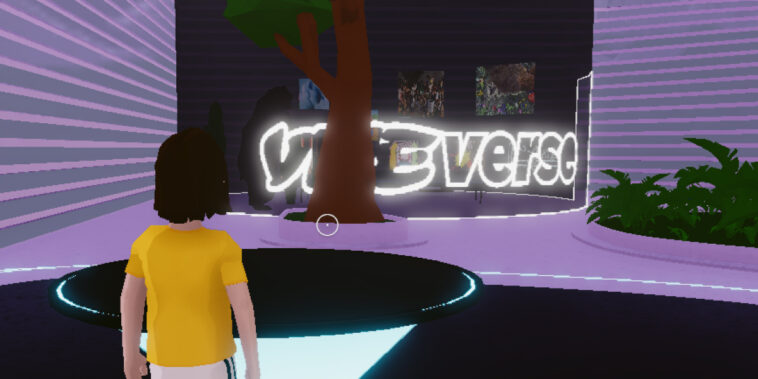The professional architecture firm Bjarke Ingels Group (BIG) recently unveiled Vice Media’s digital office in the metaverse game Decentraland. Nicknamed “ViceVerse,” this futuristic building will serve as the headquarters for employees in Vice’s Virtue Futures division.
Everyone who sees the cube-shaped ViceVerse is struck by its unique “wave-like” design. Vice Media says they told BIG to completely ignore realistic physical constraints while designing this new metaverse HQ.
Currently, the bright-white ViceVerse has twisting tunnels that connect its two floors. When BIG completes this project, ViceVerse should measure twelve stories tall.
On ViceVerse’s first floor, guests could admire Virtue Future’s current NFT collection. Virtue Futures will use everything above this NFT gallery for work-related meetings.
Vice executives said a primary reason for building its ViceVerse was to help potential partners experience the possibilities of the metaverse. Virtue Futures also believes the lack of restrictions in the metaverse helps its employees better connect and explore creative solutions.
Virtue Futures is a subsidiary of Vice’s creative agency Virtue. Employees at Virtue Futures are most interested in cutting-edge “future” technologies like NFTs, virtual reality (VR), and augmented reality (AR).
NFT fans may recall Virtue Futures helped Coca-Cola release its first NFTs on OpenSea. Virtue has also worked with cosmetics company L’Oréal, which seems to have metaverse ambitions of its own.
Although ViceVerse is BIG’s first virtual project, the Copenhagen firm has plenty of experience building revolutionary real-world offices. Just a few of BIG’s “biggest” buildings include the pyramid-like VIA 57 West in Manhattan and Google’s North Bayshore Campus.
The Metaverse Is Making Employers Rethink “Office Work”
Vice Media’s new Decentraland office highlights the growing trend of working in the metaverse. As Rarity Sniper recently reported, even JP Morgan Chase is building a virtual workspace in Decentraland. Many other companies are also interested in using AR and VR to overcome physical limitations.
For instance, Facebook’s parent Meta offers the workplace simulator Horizon Workrooms for people with Oculus VR headsets. Microsoft also has a service called “Mesh,” which allows users to create and use 3D avatars in the company’s Teams platform.
A recent analysis from ReportLinker suggested COVID-19 travel restrictions have made employers more open to using metaverse tech for work. ReportLinker also claimed the global metaverse industry could be worth $758 billion in 2026. The increased investment in AR and VR tech suggests “working in the metaverse” may soon become a reality for millions of people.
While many employers are interested in metaverse offices, it seems employees are torn over this innovation. According to Owl Labs, just over 50 percent of UK workers said they want to use more digital technologies during their workday. However, about 65 percent of respondents said the metaverse would bring positive “flexibility” to their work life.


